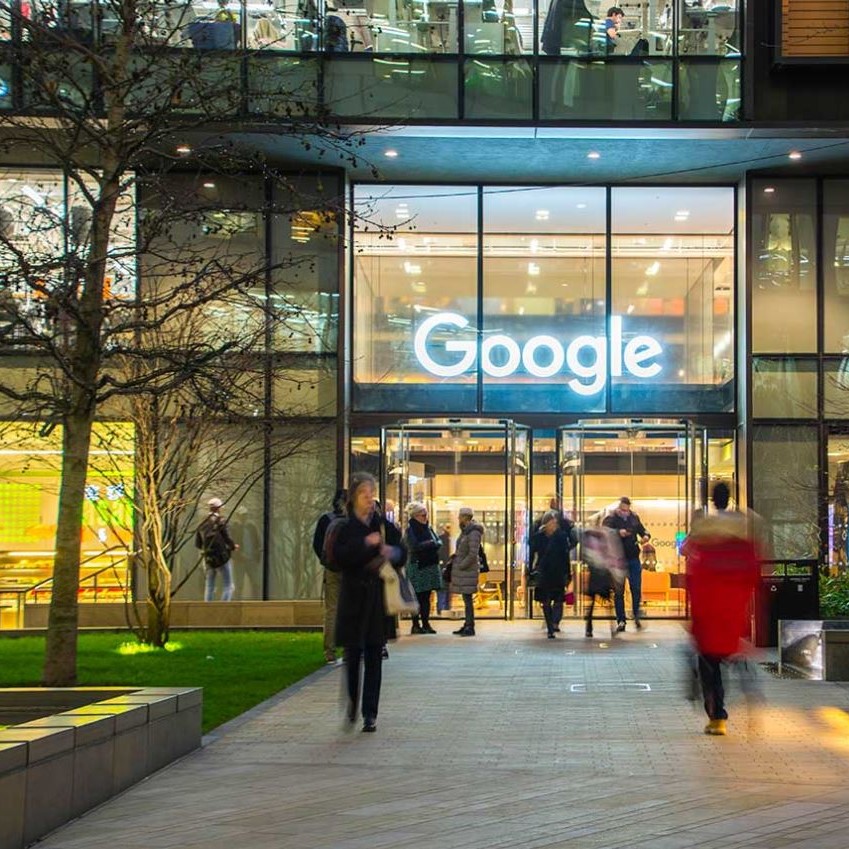To provide the best experiences, we use technologies like cookies to store and/or access device information. Consenting to these technologies will allow us to process data such as browsing behaviour or unique IDs on this site. Not consenting or withdrawing consent, may adversely affect certain features and functions.
The technical storage or access is strictly necessary for the legitimate purpose of enabling the use of a specific service explicitly requested by the subscriber or user, or for the sole purpose of carrying out the transmission of a communication over an electronic communications network.
The technical storage or access is necessary for the legitimate purpose of storing preferences that are not requested by the subscriber or user.
The technical storage or access that is used exclusively for statistical purposes.
The technical storage or access that is used exclusively for anonymous statistical purposes. Without a subpoena, voluntary compliance on the part of your Internet Service Provider, or additional records from a third party, information stored or retrieved for this purpose alone cannot usually be used to identify you.
The technical storage or access is required to create user profiles to send advertising, or to track the user on a website or across several websites for similar marketing purposes.
 Office rent in Oxfordshire has shot up an eye-watering 24.3 percent in a year, with Bidwells’ latest research suggesting the need to fast-track new office and laboratory space to fulfil the explosion in demand from growing technology companies. Bidwells recorded more than 1.1 million sq ft of office and laboratory space being sought in Oxfordshire – another all-time high – with just 569,500 sq ft of space available, less than was on offer at the end of 2018. More →
Office rent in Oxfordshire has shot up an eye-watering 24.3 percent in a year, with Bidwells’ latest research suggesting the need to fast-track new office and laboratory space to fulfil the explosion in demand from growing technology companies. Bidwells recorded more than 1.1 million sq ft of office and laboratory space being sought in Oxfordshire – another all-time high – with just 569,500 sq ft of space available, less than was on offer at the end of 2018. More →














 The UK’s regional cities are competing harder than ever with London to become the location of choice for the tech sector. According to CBRE’s report
The UK’s regional cities are competing harder than ever with London to become the location of choice for the tech sector. According to CBRE’s report 
 Intuit UK yesterday hosted almost 200 women, with diverse backgrounds across class, ethnicity and age, who are part of The Pipeline’s alumni of their Leadership Summit programme. Over 50 percent of women in the room who attended Leadership Summit have been promoted or have broadened their role since finishing the programme.
Intuit UK yesterday hosted almost 200 women, with diverse backgrounds across class, ethnicity and age, who are part of The Pipeline’s alumni of their Leadership Summit programme. Over 50 percent of women in the room who attended Leadership Summit have been promoted or have broadened their role since finishing the programme.


 A new survey into happiness at work suggests it is viewed differently according to age. Baby boomers: aspire to have job security and think careers are defined by employers. Gen X: aspire to have a work-life balance and although are loyal to a profession will not necessarily stick with the same employer. Millennials or Gen Y aspire to have freedom and flexibility and are digital entrepreneurs while Gen Z aspire to have security and stability. The report by Instant Offices’ considered what is important to each age group, and how employers approach the age gap. It found that eight in 10 millennials look for a manager to act as a mentor or coach; Baby boomers want a boss to be ethical, fair and consistent, while 61 percent of Generation X, and 55 percent of millennials, think team consensus is important.
A new survey into happiness at work suggests it is viewed differently according to age. Baby boomers: aspire to have job security and think careers are defined by employers. Gen X: aspire to have a work-life balance and although are loyal to a profession will not necessarily stick with the same employer. Millennials or Gen Y aspire to have freedom and flexibility and are digital entrepreneurs while Gen Z aspire to have security and stability. The report by Instant Offices’ considered what is important to each age group, and how employers approach the age gap. It found that eight in 10 millennials look for a manager to act as a mentor or coach; Baby boomers want a boss to be ethical, fair and consistent, while 61 percent of Generation X, and 55 percent of millennials, think team consensus is important. 












December 4, 2018
I’m a designer and I job share with an AI
by Ceilidh Higgins • Comment, Technology, Workplace design
Thomas Edison is credited with the phrase “Genius is one percent inspiration, ninety-nine percent perspiration” and I believe there is no field where this applies more than architecture and design. So often people assume that interior design is such a fun, creative job – that it’s all about drawing, colours and furniture, something like being paid to colour in and shop – when today being a designer is just as much about people management, psychology, project management, documentation, checking codes and standards and managing contracts. It’s also often about a culture that expects long hours and being always available to the job. “It’s not work when you are passionate about it?” is common. But what if instead we could all work less hours and job share with our computers?
More →